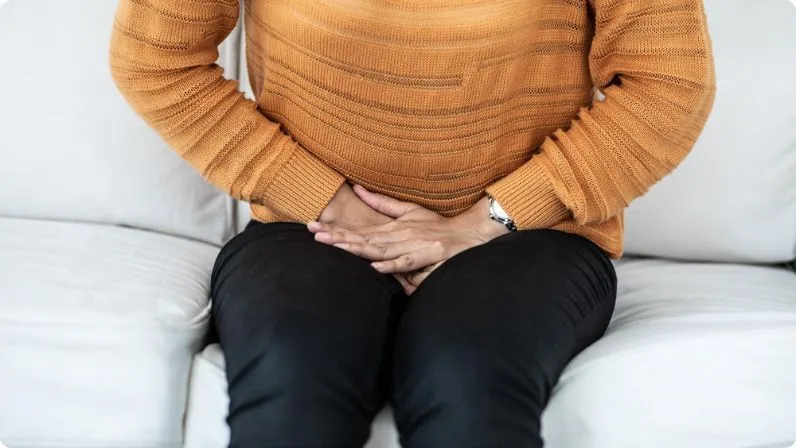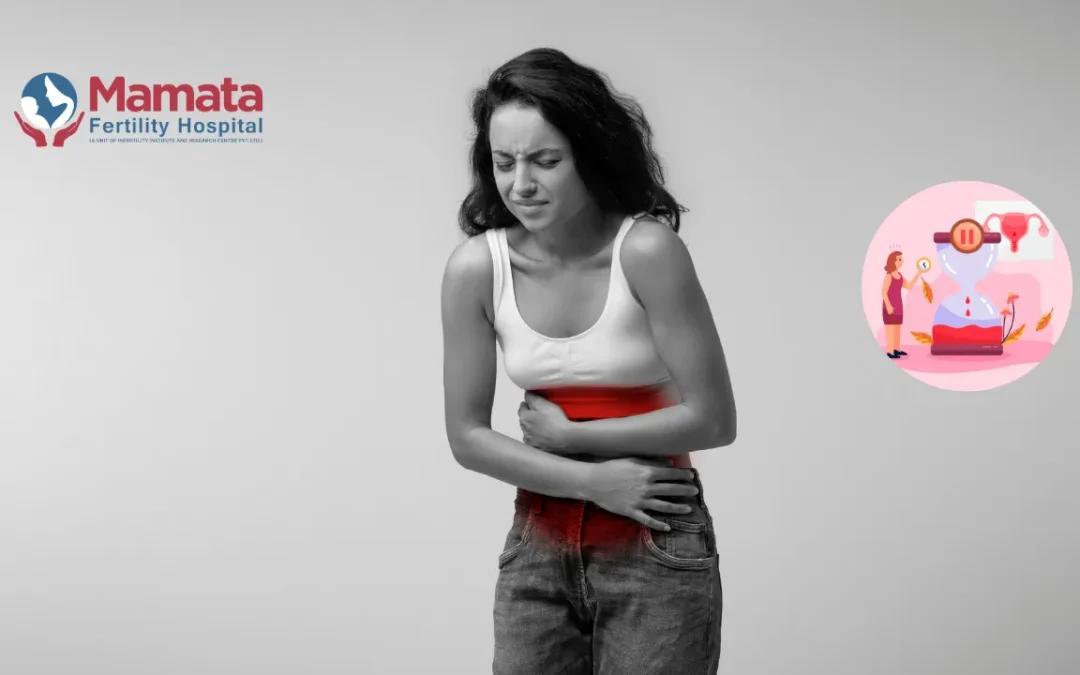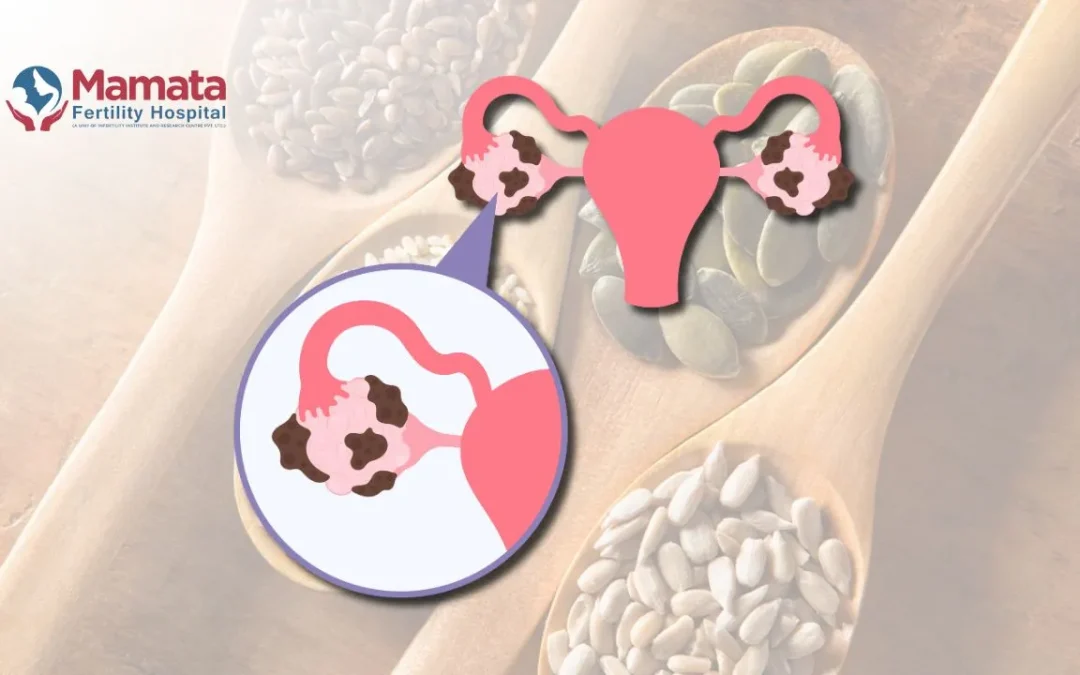Vaginal Issues Like Burning and Itching
At Mamata Fertility Hospital in Secunderabad, we understand that vaginal discomfort, like burning and itching, can be bothersome and even concerning. These symptoms are common and can have various causes, including infections, allergies, or hormone changes. While they may feel overwhelming, the good news is that most of these issues are treatable with the right care.
This guide will walk you through the causes, symptoms, and treatments for vaginal burning and itching, helping you take proactive steps to feel your best again.
For Appointments, Please Call:
More On Low Sperm Motility
What Causes Vaginal Burning and Itching?
Vaginal burning and itching happen when something disrupts the delicate balance of bacteria and moisture in your vaginal area. Think of the vagina as a well-tuned ecosystem—it thrives on balance, and when something throws it off, irritation can occur.
Here are the most common causes behind these symptoms:
1. Yeast Infection
Yeast infections are a leading cause of vaginal itching and burning. They happen when there’s an overgrowth of a fungus called Candida. This condition is often accompanied by thick, white discharge and redness.
2. Bacterial Vaginosis (BV)
This happens when there’s an imbalance in the good and bad bacteria in the vagina. Typically, BV causes itching, burning, and a fishy-smelling, grayish discharge.
3. Urinary Tract Infection (UTI)
Although UTIs affect the urinary system, you may feel burning or itching in the vaginal area due to irritation or frequent urination.
4. Allergic Reactions or Irritation
Sometimes, irritation comes from everyday products. Perfumed soaps, scented laundry detergents, pads, or tampons can cause allergic reactions, leading to burning, itching, or swelling.
5. STIs (Sexually Transmitted Infections)
Certain STIs, such as chlamydia, gonorrhea, trichomoniasis, or herpes, can cause itching, burning, or unusual discharge.
6. Hormonal Changes
Hormones play a crucial role in vaginal health. During menopause, pregnancy, or breastfeeding, estrogen levels drop, causing vaginal dryness, which may lead to itching and burning.
7. Skin Conditions
Conditions like eczema, psoriasis, or lichen sclerosus can also affect the vaginal area, causing irritation and discomfort.
8. Poor Hygiene
Using harsh cleansers, douching, or not changing pads/tampons regularly can irritate the delicate vaginal tissue.
Knowing the cause of your symptoms is key to finding the right treatment.

Symptoms and Diagnosis
Recognizing Vaginal Burning and Itching
Vaginal issues may show up in different ways, depending on their cause. Here are the common signs:
- Persistent itching or a burning sensation in or around the vaginal area.
- Redness, swelling, or soreness.
- Discomfort during urination or sexual activity.
- Unusual discharge (thick, white, watery, green, or foul-smelling).
- Cracked or peeling skin around the vaginal area.
Always pay attention to new or worsening symptoms, as untreated issues might lead to complications.
How Are Vaginal Issues Diagnosed?
At Mamata Fertility Hospital, we use a variety of methods to diagnose vaginal problems:
- Medical History: Knowing your health background and lifestyle habits can provide essential clues.
- Physical Examination: A pelvic exam allows doctors to assess redness, swelling, or unusual discharge.
- Laboratory Tests:
- Swabs of vaginal discharge to identify infections like yeast, BV, or STIs.
- A urine test to rule out UTIs.
- Blood tests may also be done for specific infections or hormone levels.
- Skin Biopsy: If skin conditions like lichen sclerosus are suspected, a small tissue sample may be tested.
Early diagnosis ensures prompt and effective treatment, helping you get back to feeling normal sooner.
Impact on Health and Daily Life
Physical Health
If untreated, vaginal issues like burning and itching can lead to:
- Chronic Discomfort: Persistent symptoms can disrupt your day-to-day life.
- Complications: BV or yeast infections can heighten the risk of other infections if left untreated.
- Sexual Health Concerns: Discomfort during sex may affect intimacy.
Emotional Well-Being
Vaginal health isn’t just physical—it’s connected to emotional well-being, too. Chronic irritation can cause embarrassment, self-consciousness, or anxiety, especially when symptoms linger or affect your relationship.
No one should have to live with discomfort. Understanding the problem and seeking care is essential for improving both physical and emotional health.
Treatment and Management Options
Medical Treatment
Treatment depends on the cause of your symptoms, and your doctor will recommend the appropriate options.
1. Medications
- Antifungal Treatments: Available as creams, suppositories, or oral pills, they treat yeast infections effectively.
- Antibiotics: Used for bacterial infections or certain STIs like chlamydia or gonorrhea.
- Antivirals: For treating viral infections like herpes.
- Topical Corticosteroids: Help calm skin irritation caused by eczema or other skin conditions.
2. Hormonal Therapy
For menopausal-related dryness and itching, estrogen creams or vaginal rings can restore moisture to the area.
3. Pain Management
Over-the-counter numbing gels or anti-inflammatory medications like ibuprofen can provide symptomatic relief.
4. Procedures
For cases involving recurring UTIs, abnormal skin growths, or structural abnormalities, additional procedures may be recommended.
Alternative Approaches
Some patients have found relief through natural remedies or alternative options:
- Probiotics: These maintain a healthy balance of bacteria in the vagina.
- Warm Baths with Baking Soda: May help soothe irritation.
- Herbal Products: Products like aloe vera-based creams may relieve minor discomfort.
Always confirm with your doctor before trying alternative treatments.
Lifestyle and Support Recommendations
Your daily habits play a huge role in managing and preventing vaginal discomfort. Here are some simple yet powerful ways to improve vaginal health.
1. Hygiene Practices
- Wash Gently: Cleanse the area with water or mild, unscented soap. Avoid douching or using harsh products.
- Use Unscented Products: Choose fragrance-free pads, tampons, and laundry detergents.
- Wipe Front to Back: This prevents the spread of bacteria to the vaginal area.
- Stay Dry: Change out of wet clothes, like swimsuits or gym gear, quickly.
2. Clothing Choices
Wear loose-fitting, breathable underwear made from materials like cotton to reduce irritation and promote air circulation.
3. Balanced Diet
Nutritional choices can improve vaginal health:
- Eat Probiotics: Yogurt or fermented foods promote good bacteria.
- Stay Hydrated: Drinking enough water prevents dryness.
- Avoid Excess Sugar: High sugar levels can contribute to yeast overgrowth.
4. Stress Management
Stress can weaken your immune system, so practice yoga, meditation, or other relaxation techniques to lower stress levels.
5. Safe Practices
- Use protection during sex to minimize the risk of STIs.
- Stay informed about when to seek medical care if something feels wrong.
6. Regular Check-Ups
Seeing your doctor for annual pelvic exams can help catch any issues early and ensure your vaginal health stays on track.
Frequently Asked Questions (FAQs)
1. Is Vaginal Itching Normal?
Mild itching can happen occasionally, but if it’s persistent, severe, or linked with unusual discharge, it’s important to seek medical care.
2. Can I Treat Itching with Over-the-Counter Products?
Products like antifungal creams can relieve yeast-related symptoms, but always consult a doctor before self-treating to ensure you’re using the right treatment.
3. What Should I Do If It Feels Worse After Using a New Product?
Stop using the product immediately and wash the area gently with water. Look for hypoallergenic products and consult a doctor if symptoms persist.
4. Can Vaginal Issues Affect Fertility?
Certain underlying causes, like infections, can impact fertility if left untreated. Early diagnosis and treatment can prevent complications.
5. When Should I See a Doctor?
If symptoms like burning, itching, or unusual discharge persist, worsen, or come with pain or fever, it’s time to make an appointment.
At Mamata Fertility Hospital, we’re dedicated to providing compassionate care and helping women regain their comfort and confidence. If you’re struggling with vaginal burning or itching, don’t hesitate to contact us. Together, we’ll uncover the cause, find effective treatments, and ensure your health and happiness are restored.
Reviewd By

Dr Aarti Deenadayal Tolani
Clinical Director, Scientific In-Charge & Fertility Consultant
MBBS, MS ( OBGYN), FICOG
Expert in Reproductive Endocrinology, Infertility, Advanced Gynaec Ultrasound, and Faculty at Mamata Fertility Hospital.
Blogs and Articles

How to Cure Irregular Periods in Teenage Girls? Causes & Treatments
Irregular periods in teenage girls are common due to hormonal changes, stress, and lifestyle factors. Learn about the causes, natural remedies, and when to seek medical advice.

Seed Cycling for PCOS: Is It Worth It?
Seed cycling may support PCOS naturally, but lacks strong evidence. Use it as a complement to medical care for best results.

Foods to Regulate Periods Naturally
Learn how natural foods like leafy greens, seeds, and spices can help balance hormones, regulate periods, and support better menstrual health.

